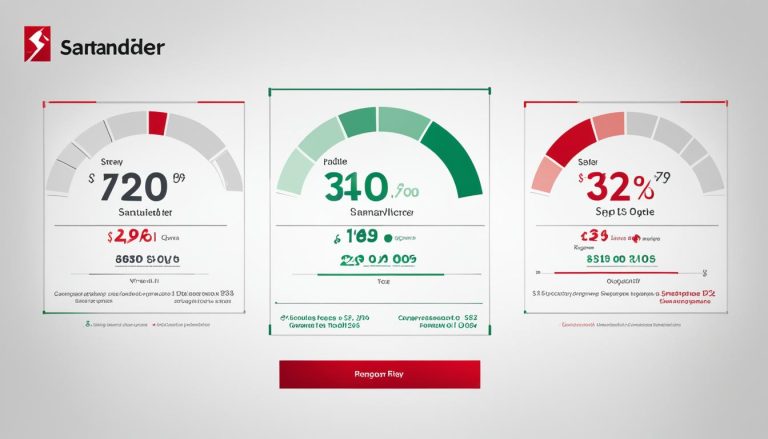Welcome to our guide on NatWest mortgage rates in the UK for 2024. If you’re in the market for a mortgage, finding the best deal is crucial to ensure you get the most out of your investment. Whether you’re a first-time buyer or looking to remortgage, NatWest offers a range of mortgage options to suit your needs.
At NatWest, we understand that securing the right mortgage is a major financial decision. That’s why we strive to provide competitive rates and flexible terms to help you achieve your homeownership goals. With our expertise and commitment to customer satisfaction, you can trust us to guide you through the mortgage process.
In this article, we will explore the NatWest mortgage rates available in the UK for 2024. We’ll help you understand the different types of mortgages, whether it’s fixed rate or variable rate, and provide valuable tips on how to secure the best mortgage deal. Our aim is to equip you with the knowledge and insights you need to make an informed decision.
So, if you’re ready to embark on your homeownership journey and want to find the best mortgage deal for your needs, let’s dive into the world of NatWest mortgage rates. Whether you’re a first-time buyer or looking to remortgage, we’ve got you covered. Let’s get started!
Understanding mortgage rates
Before exploring the specific NatWest mortgage rates, it’s crucial to have a solid understanding of how mortgage rates work. By gaining insight into the nuances of fixed rate mortgages and variable rate mortgages, you can make an informed decision regarding your home financing options.
Fixed Rate Mortgages
In a fixed rate mortgage, the interest rate remains constant throughout the entire loan term. This means that your monthly mortgage payments will stay the same, providing stability and predictability. Fixed rate mortgages are particularly appealing to those who prefer a consistent budget and want to avoid any potential fluctuations in interest rates.
Variable Rate Mortgages
On the other hand, variable rate mortgages, also known as adjustable rate mortgages, feature an interest rate that can fluctuate periodically based on the prevailing market conditions. With variable rate mortgages, your monthly mortgage payments may vary over time, potentially leading to savings when interest rates are low. However, it’s important to note that variable rate mortgages come with a certain level of uncertainty.
By carefully considering the pros and cons of fixed rate mortgages and variable rate mortgages, you can determine which type of mortgage aligns best with your financial goals and risk tolerance.

NatWest fixed rate mortgages
If you’re looking for stability and predictability in your monthly mortgage payments, NatWest offers a range of fixed rate mortgages. With a fixed rate mortgage, your interest rate remains the same throughout a specific period, providing you with peace of mind and protection against potential interest rate fluctuations.
At NatWest, you have various fixed rate options to choose from, each with its own advantages. Whether you’re a first-time buyer or looking to remortgage, there’s a fixed rate mortgage that suits your needs.
Benefits of NatWest fixed rate mortgages
Opting for a fixed rate mortgage with NatWest comes with several benefits:
- Predictable Payments: With a fixed rate mortgage, you know exactly how much you’ll pay each month, allowing you to budget effectively.
- Protection Against Interest Rate Increases: If interest rates rise during your fixed rate period, your monthly payments won’t be affected, providing you with financial stability.
- Peace of Mind: Knowing that your mortgage payments won’t change for a predetermined period can provide peace of mind and make financial planning easier.
Whether you prefer a short-term fixed rate period or a longer one, NatWest has options tailored to your preferences.
Exploring the fixed rate options
Let’s take a look at the various fixed rate options offered by NatWest:
| Fixed Rate Period | Interest Rate (APR) | Available Terms |
|---|---|---|
| 2 years | 2.5% | Up to 40 years |
| 5 years | 2.8% | Up to 40 years |
| 10 years | 3.2% | Up to 35 years |
These are just a few examples of the fixed rate options available at NatWest. The interest rates and term durations may vary based on your individual circumstances, so it’s important to speak with a mortgage advisor to find the best deal for you.
If you’re unsure about how long you want to fix your rate for, NatWest also offers tracker mortgages, which allow you to take advantage of potential interest rate decreases while still offering a degree of predictability.
To explore the full range of NatWest fixed rate mortgages and find the best deal for you, it’s recommended to get personalized advice from a mortgage advisor. They can guide you through the options and help you make an informed decision based on your financial situation and goals.

NatWest variable rate mortgages
If you’re looking for flexibility and the potential for lower interest rates, NatWest’s variable rate mortgages may be the ideal choice for you. With a variable rate mortgage, the interest rate can fluctuate over time, giving you the opportunity to benefit from any reductions in interest rates.
Choosing a variable rate mortgage can be advantageous, especially if you expect interest rates to decrease in the future. It allows you to take advantage of potential savings on your monthly mortgage payments.
The benefits of NatWest variable rate mortgages
- Lower initial interest rates: Variable rate mortgages often offer lower initial interest rates compared to fixed rate mortgages. This can help you save money during the initial period of your mortgage.
- Flexibility: Variable rate mortgages usually come with more flexible terms and conditions. This can be beneficial if you have plans to sell your property or make additional repayments in the near future.
- Ability to benefit from reduced interest rates: If interest rates decrease during the term of your mortgage, you can benefit from lower monthly mortgage payments and potentially save a significant amount of money over time.
Considerations for choosing a variable rate mortgage
While variable rate mortgages offer several advantages, it’s important to consider the following factors:
- Interest rate fluctuations: With a variable rate mortgage, your interest rate can increase as well as decrease. While you may benefit from lower rates, there is also the possibility of rates increasing, which would result in higher monthly mortgage payments.
- Financial stability: If you’re on a tight budget or have limited financial flexibility, a variable rate mortgage may not be the best option for you. Consider whether you could afford higher mortgage payments if the interest rates were to rise.
- Future plans: If you plan to stay in your home for a short period of time or expect changes in your financial situation, a variable rate mortgage can provide the flexibility you need. However, if you plan to stay in your home for the long term, a fixed rate mortgage may offer more stability.
By carefully weighing the benefits and considerations, you can make an informed decision about whether a NatWest variable rate mortgage is right for you. Remember to consider your current financial situation, future plans, and risk tolerance when choosing between different mortgage options.
Here’s an example table comparing the features of NatWest’s variable rate mortgages:
| Mortgage Product | Interest Rate (Variable) | Minimum Deposit | Repayment Term |
|---|---|---|---|
| NatWest Variable Mortgage A | 1.99% | 10% | Up to 35 years |
| NatWest Variable Mortgage B | 2.25% | 15% | Up to 40 years |
| NatWest Variable Mortgage C | 2.49% | 20% | Up to 25 years |
Keep in mind that these rates and terms are for illustrative purposes only and may be subject to change. It’s always recommended to consult with a mortgage advisor and discuss your unique circumstances before making any decisions.

Comparing NatWest mortgage rates
When it comes to finding the best mortgage deal, comparing mortgage rates from different lenders is a crucial step. However, the process can often be overwhelming and confusing. At NatWest, we understand the importance of making an informed decision that suits your unique circumstances and financial goals.
As a leading mortgage provider in the UK, NatWest offers a wide range of mortgage products with competitive rates. In this section, we will guide you through the process of comparing NatWest mortgage rates, ensuring that you can find the best option for your needs.
One effective way of comparing mortgage rates is by using a mortgage comparison tool. This online tool allows you to enter your desired loan amount, term, and other relevant details, and it provides you with a list of mortgage options from various lenders, including NatWest. You’ll be able to see the interest rates, repayment terms, and other important information side by side, making it easier to compare and identify the best mortgage deals.
Consider the following factors when comparing mortgage rates:
- Interest rates: Compare the interest rates offered by NatWest to those of other lenders. A lower interest rate can save you a significant amount of money over the life of your mortgage.
- Fixed or variable rate: Decide whether you prefer a fixed rate mortgage, which offers stability with consistent monthly payments, or a variable rate mortgage, which can fluctuate based on market conditions.
- Loan term: Consider the length of the mortgage term and whether it aligns with your financial goals. A longer term may result in lower monthly payments, but you’ll pay more in interest over time.
- Additional fees: Take into account any additional fees associated with the mortgage, such as arrangement fees or early repayment charges. These can impact the overall cost of the mortgage.
- Customer reviews: Research customer reviews and feedback to gauge the level of customer service and satisfaction provided by the lender.
By carefully considering these factors and comparing NatWest mortgage rates to other lenders, you can ensure that you find the best mortgage deal that suits your needs and allows you to achieve your homeownership dreams.
Next, we’ll discuss the importance of using a mortgage calculator to estimate your monthly payments and how it can help you make an informed decision.

Using a mortgage calculator
Are you wondering how much you can afford for your dream home? A mortgage calculator is a valuable tool that can help you estimate your monthly payments and determine the best mortgage deals for your budget.
Using a mortgage calculator is simple and efficient. Here’s a step-by-step guide to help you get started:
- Input your loan amount: Enter the total amount you would like to borrow from the lender.
- Choose your interest rate: Select the interest rate that is applicable to your mortgage.
- Select your loan term: Decide on the duration of your mortgage, usually ranging from 15 to 30 years.
- Enter your down payment: Specify the amount you plan to put down upfront.
- Include your property taxes: Factor in the estimated annual property taxes for a more accurate calculation.
- Add your insurance costs: Account for any homeowners insurance premiums or mortgage insurance fees.
- Click calculate: Hit the calculate button to get an instant estimate of your monthly mortgage payments.
By using a mortgage calculator, you can adjust the variables to explore different scenarios and find the best mortgage deals that suit your financial situation. It allows you to consider your options and make informed decisions about your home purchase.
For accurate calculations, be sure to input all the necessary details and review the results carefully. A mortgage calculator is a helpful tool, but it’s essential to consult with mortgage advisors or lenders for personalized advice and assistance.
Benefits of using a mortgage calculator
- Estimate affordability: A mortgage calculator helps you determine how much you can afford, taking into account your income, expenses, and other financial obligations.
- Compare mortgage options: By adjusting the loan amount, interest rate, and loan term, you can compare different mortgage options and identify the most suitable one for your needs.
- Plan your budget: With the estimated monthly payments from a mortgage calculator, you can plan your budget accordingly and ensure that your mortgage payments align with your financial goals.
- Save time and effort: Instead of manually calculating mortgage payments, a mortgage calculator provides instant results, saving you time and effort in the process.
Using a mortgage calculator is an essential step in your journey to homeownership. It empowers you with the knowledge and information you need to make informed decisions about the best mortgage deals that align with your financial goals.

Remember, while a mortgage calculator can provide estimates, it’s crucial to seek professional advice from mortgage advisors and lenders for personalized guidance tailored to your unique circumstances.
Understanding mortgage interest rates
Mortgage interest rates are a crucial factor to consider when searching for the best mortgage deals. These rates directly impact your monthly mortgage payments and the overall cost of your mortgage. Understanding how mortgage interest rates are determined and keeping an eye on current market trends can help you make informed decisions.
The interest rate on a mortgage represents the cost of borrowing money from a lender. It is expressed as a percentage and can be either fixed or variable. Fixed-rate mortgages have interest rates that remain constant throughout the loan term, providing stability and predictability. On the other hand, variable-rate mortgages have interest rates that can fluctuate over time, potentially resulting in lower payments when market rates decrease.
When determining mortgage interest rates, lenders consider various factors, such as:
- The current state of the economy and the overall interest rate environment
- The lender’s operating costs and profit margins
- The borrower’s creditworthiness, including credit score and financial history
- The loan-to-value ratio, which is the ratio of the loan amount to the appraised value of the property
Market trends also influence mortgage interest rates. Factors such as inflation, economic indicators, and government policies can impact interest rates on a broader scale. Staying informed about these trends can help you gauge whether rates are likely to rise or fall in the near future, allowing you to time your mortgage application for when rates are more favorable.
The Impact of Mortgage Interest Rates
The mortgage interest rate you secure will significantly impact the affordability of your home and the total amount you repay over time. Even a small difference in interest rates can result in thousands of pounds in additional costs over the life of your mortgage.
To illustrate this impact, let’s consider a hypothetical scenario:
| Loan Amount | Mortgage Interest Rate | ||
|---|---|---|---|
| 3% | 4% | 5% | |
| £200,000 | £843 | £948 | £1,054 |
| £300,000 | £1,266 | £1,422 | £1,580 |
| £400,000 | £1,688 | £1,896 | £2,107 |
In this table, you can see how different mortgage interest rates affect monthly repayments for various loan amounts. As the interest rate increases, so do the monthly payments. It’s essential to compare rates and explore various mortgage options to secure the best deal and save money over the long term.

Consulting with a mortgage advisor can also be helpful in navigating the complexities of mortgage interest rates and finding the best mortgage deals. They can provide expert guidance tailored to your specific financial situation and help you make informed decisions.
Working with a mortgage advisor
Throughout the mortgage approval process, it can be incredibly helpful to have expert guidance from a mortgage advisor. Mortgage advisors are professionals who specialize in the mortgage industry and can provide valuable insights and support to ensure you find the right mortgage deal. Here, we will discuss the role of a mortgage advisor and how they can assist you in navigating the complex world of mortgages.
When working with a mortgage advisor, you can expect:
- Expert advice: Mortgage advisors have in-depth knowledge of the mortgage market and can provide expert advice tailored to your individual circumstances. They can help you understand the different types of mortgages available, explain complex terms and conditions, and guide you toward the best mortgage deal for your needs.
- Mortgage product knowledge: Mortgage advisors have access to a wide range of mortgage products and can help you identify the most suitable options based on your financial situation. They will take into account factors such as your income, credit history, and future plans to recommend mortgage products that align with your goals.
- Application assistance: Applying for a mortgage can be a complex process, and a mortgage advisor can assist you with completing the necessary paperwork, gathering required documents, and submitting your application to lenders. They can help ensure that your application is thorough and accurate, increasing your chances of mortgage approval.
- Access to lender networks: Mortgage advisors often have established relationships with various lenders and can connect you with mortgage options that may not be available directly to the public. This gives you access to a wider range of mortgage deals and potentially better interest rates.
- Negotiation support: Mortgage advisors can negotiate with lenders on your behalf to secure competitive interest rates and favorable terms. They have the experience and knowledge to navigate negotiations effectively, potentially saving you money in the long run.
Working with a mortgage advisor can streamline the mortgage approval process and provide peace of mind knowing that you have professional guidance every step of the way.

The mortgage approval process
Understanding the mortgage approval process is essential to ensure a smooth journey towards homeownership. In this section, we will walk you through the steps involved in getting your mortgage approved. Whether you’re a first-time buyer or looking to remortgage, this information will help you navigate through the mortgage application process with confidence.
Gather Your Financial Documentation
Before you begin the mortgage application process, it’s important to gather all the necessary financial documentation. This typically includes:
- Proof of income: Payslips, tax returns, or business accounts if you’re self-employed.
- Bank statements: To show your income, expenses, and savings.
- Proof of identity: Valid passport or driving license.
- Proof of address: Utility bills or bank statements.
Having these documents ready beforehand will streamline the mortgage approval process.
Choose a Mortgage Advisor
While it’s possible to navigate the mortgage approval process independently, working with a mortgage advisor can provide invaluable expertise and guidance. A mortgage advisor can help you find the best mortgage deal tailored to your financial goals and circumstances. They will assess your eligibility, compare mortgage options, and assist you throughout the application process.
Submit Your Mortgage Application
Once you have gathered all the necessary documentation and chosen a mortgage advisor, it’s time to submit your mortgage application. Your mortgage advisor will help you complete the application form accurately, ensuring all the required information is provided. The application will include details about your income, employment, credit history, and the property you intend to purchase.
Undergo Credit Checks and Affordability Assessment
After submitting your mortgage application, the lender will conduct credit checks and affordability assessments. They will review your credit history to assess your creditworthiness. Additionally, they will assess your income, expenses, and financial commitments to determine the affordability of the mortgage loan. This process helps the lender evaluate the risk associated with lending to you.
Property Valuation
The lender will also arrange for a valuation of the property you intend to purchase. This valuation aims to determine the property’s market value and ensure it provides sufficient security for the mortgage loan. The cost of the valuation is typically borne by the borrower.
Receive Mortgage Offer
If your mortgage application is successful and the lender is satisfied with the credit checks, affordability assessment, and property valuation, they will make a formal mortgage offer. This offer will outline the details of the mortgage, including the loan amount, interest rate, and repayment terms. It’s important to carefully review the offer and seek advice from your mortgage advisor before accepting it.
Completing the Mortgage Process
Once you have reviewed and accepted the mortgage offer, you will need to instruct a solicitor or conveyancer to handle the legal aspects of the property purchase. They will carry out searches, prepare the necessary documents, and facilitate the transfer of funds. On the completion date, the mortgage funds will be released, and you will become the legal owner of the property.
Stay in Touch with Your Mortgage Advisor
Throughout the mortgage approval process, it’s important to stay in touch with your mortgage advisor. They can provide updates, answer any questions, and ensure everything runs smoothly. They will also assist you with any necessary paperwork and coordinate with the lender and solicitor to ensure a timely completion.
By understanding the mortgage approval process and working with a knowledgeable mortgage advisor, you can navigate the journey towards homeownership with confidence. Take the time to gather your documentation, choose the right advisor, and submit your mortgage application. With careful preparation and expert guidance, you’ll be one step closer to securing the mortgage that meets your needs.
Tips for getting the best mortgage deal
Securing the best mortgage deal is crucial when buying a property or refinancing an existing mortgage. With the right approach and knowledge, you can potentially save money and find a deal that aligns with your financial goals. Here are some valuable tips to help you navigate the mortgage market and ensure you get the best mortgage deal:
- Improve your credit score: A higher credit score often translates into better mortgage deals. Pay your bills on time, keep your credit utilization low, and avoid new credit applications before applying for a mortgage. Taking steps to improve your creditworthiness can make you a more attractive borrower to lenders.
- Compare mortgage rates: Shopping around and comparing mortgage rates from different lenders is essential. Use online comparison tools or consult with a mortgage advisor to get a clear picture of the available options. Remember to consider both fixed rate mortgages and variable rate mortgages, weighing the pros and cons of each.
- Negotiate with lenders: Don’t be afraid to negotiate the terms of your mortgage with lenders. Sometimes, they may be open to offering better interest rates, lower fees, or other incentives to win your business. Be prepared to negotiate and advocate for yourself.
- Consider the total cost: While the interest rate is a significant factor, it’s important to consider the overall cost of the mortgage. Look beyond the headline rate and carefully examine fees, closing costs, and any other charges associated with the loan. A mortgage with a lower interest rate may have higher fees, affecting the total amount you pay over time.
- Don’t forget about down payments: A larger down payment can often lead to better mortgage deals. Not only does it reduce the amount you need to borrow, but it also demonstrates your financial stability to lenders. Aim to save as much as possible for your down payment to enhance your chances of securing favorable mortgage terms.
- Pay attention to loan terms: Mortgage terms, such as the length of the loan and repayment options, can significantly impact your monthly payments and the total cost of the mortgage. Consider your financial situation and long-term plans when choosing between different loan terms.
By implementing these tips and taking an active role in your mortgage journey, you can increase your chances of getting the best mortgage deal possible. Remember to always do thorough research, seek professional advice when needed, and carefully review all the terms and conditions before making a decision.
| Tip | Summary |
|---|---|
| Improve your credit score | A higher credit score improves your chances of securing better mortgage deals. |
| Compare mortgage rates | Shop around and compare rates to ensure you’re getting the best offer. |
| Negotiate with lenders | Don’t be afraid to negotiate terms and ask for better rates or incentives. |
| Consider the total cost | Look beyond the interest rate and factor in fees and closing costs. |
| Don’t forget about down payments | A larger down payment can lead to better mortgage terms. |
| Pay attention to loan terms | Choose loan terms that align with your financial situation and plans. |
Additional factors to consider
While mortgage rates are an important consideration when choosing a mortgage, there are other factors that should also be taken into account. These elements can significantly impact your overall mortgage experience and help you find the best mortgage deal for your needs.
Loan term
The loan term refers to the length of time you will have to repay your mortgage. This is an important factor to consider as it directly affects your monthly mortgage payments and the total amount of interest you will pay over time. Shorter loan terms typically have higher monthly payments but result in paying less interest overall, while longer loan terms may have lower monthly payments but result in paying more interest in the long run.
Repayment options
Mortgages offer different repayment options, and it’s important to understand which option suits your financial situation. The two main repayment options are:
- Capital and interest repayment: With this option, your monthly payments include both the repayment of the loan amount (capital) and the interest charged by the lender. This ensures that your mortgage is fully paid off by the end of the loan term.
- Interest-only repayment: This option allows you to only pay the interest on the mortgage for a set period, typically ranging from a few years to the entire loan term. At the end of the interest-only period, you will need to repay the loan amount in full through another means, such as selling the property or using savings.
It’s important to carefully consider which repayment option aligns with your financial goals and preferences.
Fees
Mortgages often come with various fees and charges that can significantly impact the overall cost. These fees may include arrangement fees, valuation fees, legal fees, and early repayment charges, among others. It’s essential to understand the fees associated with a mortgage deal and factor them into your decision-making process. Some mortgage deals may offer lower interest rates but come with higher fees, while others may have higher interest rates but lower fees. It’s crucial to compare the total cost of different mortgage deals, taking into account both the interest rates and fees.
By considering these additional factors alongside mortgage rates, you can make a more informed decision and find the best mortgage deal that aligns with your financial situation and goals.
NatWest mortgage rates in 2024
In this section, we will provide specific details about the NatWest mortgage rates available in the UK for the year 2024. Whether you’re a first-time buyer or looking to remortgage, understanding the rates offered by NatWest can help you make an informed decision.
NatWest offers a range of mortgage options to cater to different needs and preferences. Let’s take a closer look at the various types of mortgages they offer:
Fixed Rate Mortgages
With a fixed rate mortgage, your interest rate remains the same for a predetermined period, typically 2, 3, or 5 years. This provides stability and allows you to plan your finances with confidence. NatWest offers competitive fixed rate mortgages, and during our review, we found some enticing offers for 2024.
Variable Rate Mortgages
A variable rate mortgage, also known as a tracker mortgage, follows the Bank of England base rate or another benchmark rate. The interest rate can fluctuate over time, potentially resulting in lower monthly payments when the rates are low. NatWest provides variable rate mortgages with attractive features and benefits.
Special Offers and Incentives
As one of the leading mortgage lenders in the UK, NatWest often introduces exclusive offers and incentives to attract borrowers. These promotions may include discounted rates, cashback offers, or fee waivers. We’ll highlight any special deals available for NatWest mortgage rates in 2024.
It’s important to note that mortgage rates can vary based on multiple factors, such as the loan amount, loan-to-value ratio, and your credit score. Our table below provides an overview of the NatWest mortgage rates in 2024 for different mortgage types and terms.
| Mortgage Type | Loan Amount | Term | Interest Rate |
|---|---|---|---|
| Fixed Rate Mortgage | £250,000 | 2 years | 2.19% |
| Fixed Rate Mortgage | £350,000 | 5 years | 2.79% |
| Variable Rate Mortgage | £200,000 | 2 years | 1.99% + base rate |
| Variable Rate Mortgage | £400,000 | 3 years | 2.39% + base rate |
Please note that the rates shown in the table are for illustrative purposes only and are subject to change. It’s always recommended to contact NatWest directly or consult with a mortgage advisor to obtain the most up-to-date and accurate information about their mortgage rates in 2024.
With the information provided, you can compare the NatWest mortgage rates for various mortgage types and terms. Remember to consider other factors, such as arrangement fees, early repayment charges, and the overall cost of the mortgage when making your decision. By finding the right mortgage deal, you can take a step closer to achieving your homeownership dreams.
Tips for getting approved for a NatWest mortgage
Obtaining a mortgage from NatWest is an exciting step towards homeownership. To improve your chances of getting approved for a NatWest mortgage, here are some valuable tips and insights:
1. Improve your credit score
One of the crucial factors that lenders consider when approving mortgages is your credit score. A higher credit score demonstrates financial responsibility and increases your chances of getting approved. Take steps to improve your credit score by paying bills on time, keeping credit utilization low, and correcting any errors on your credit report.
2. Save for a larger down payment
A larger down payment can significantly strengthen your mortgage application. It shows lenders that you have the financial capacity to commit to the mortgage. By saving more towards your down payment, you can demonstrate your commitment to homeownership and potentially secure better mortgage terms.
3. Reduce your debt-to-income ratio
Lenders also consider your debt-to-income ratio (DTI) when evaluating your mortgage application. Lowering your DTI by paying off existing debts or increasing your income can improve your chances of approval. NatWest, like other lenders, prefers borrowers with a lower DTI as it indicates a lower risk of default.
4. Gather all necessary documents
NatWest requires specific documents to process your mortgage application. Gathering these documents ahead of time can help speed up the approval process. Some common documents include pay stubs, bank statements, tax returns, and identification documents. By being organized and providing all the necessary information, you can demonstrate your readiness and reliability to the lender.
5. Work with a mortgage advisor
Consider enlisting the expertise of a mortgage advisor to navigate the mortgage approval process. A mortgage advisor can help you understand NatWest’s requirements, guide you through the documentation process, and provide insights to improve your application. They have extensive knowledge of the mortgage industry and can increase your chances of getting approved.
By following these tips and taking proactive steps, you can enhance your chances of getting approved for a NatWest mortgage. Remember, each application is unique, so it’s essential to assess your individual circumstances and work towards meeting NatWest’s criteria.
Conclusion
After exploring the NatWest mortgage rates available in the UK for 2024, it is clear that careful consideration of various factors is crucial in finding the best mortgage deal. NatWest offers a range of options to suit different needs and preferences, whether you are looking for stability with a fixed rate mortgage or flexibility with a variable rate mortgage.
To ensure you make an informed decision, it is important to understand how mortgage rates work and compare them with other lenders. Utilizing a mortgage calculator can help estimate your monthly payments and determine affordability. Seeking guidance from a mortgage advisor can also provide valuable insights throughout the mortgage process.
By taking these steps and exploring the options available, you can secure a mortgage deal that not only aligns with your financial goals but also helps you achieve homeownership. NatWest mortgage rates in the UK, combined with careful planning and expert advice, can make your homeownership dreams a reality.
FAQ
Are fixed rate mortgages better than variable rate mortgages?
The choice between fixed rate mortgages and variable rate mortgages depends on your preferences and financial situation. Fixed rate mortgages offer stability and predictable monthly payments, while variable rate mortgages may provide lower interest rates initially but can fluctuate over time. It’s important to consider your long-term financial goals and risk tolerance when deciding between the two.
How can I compare NatWest mortgage rates with other lenders?
Comparing NatWest mortgage rates with other lenders can be done by researching online, using mortgage comparison websites, or by consulting with a mortgage advisor. It’s essential to consider the interest rates, fees, repayment terms, and overall customer service offered by various lenders to determine the best option for your needs.
How do I use a mortgage calculator?
Using a mortgage calculator is easy. You input information such as the loan amount, interest rate, and loan term, and the calculator will generate an estimate of your monthly mortgage payments. This can help you gauge how much you can afford and compare different mortgage options. NatWest provides a mortgage calculator on their website for your convenience.
What factors affect mortgage interest rates?
Mortgage interest rates are influenced by factors such as the Bank of England’s base rate, inflation, economic conditions, and the lender’s assessment of risk. Changes in these factors can cause mortgage interest rates to fluctuate. It’s important to stay informed about market trends and consult with a mortgage advisor to understand the current interest rate environment.
How does the mortgage approval process work?
The mortgage approval process involves several steps. First, you need to complete a mortgage application and provide supporting documents, such as proof of income and identification. The lender will then assess your eligibility and conduct a valuation of the property. If everything meets the lender’s criteria, you will receive a mortgage offer. It’s important to work closely with the lender and provide any additional information they require to ensure a smooth approval process.
How can a mortgage advisor help me?
A mortgage advisor can provide expert guidance and support throughout the mortgage process. They will assess your financial situation, help you understand your options, and recommend suitable mortgage deals. They can also assist with paperwork, liaise with lenders on your behalf, and help ensure a smooth mortgage approval process. Their knowledge and experience can save you time and help you make informed decisions.






